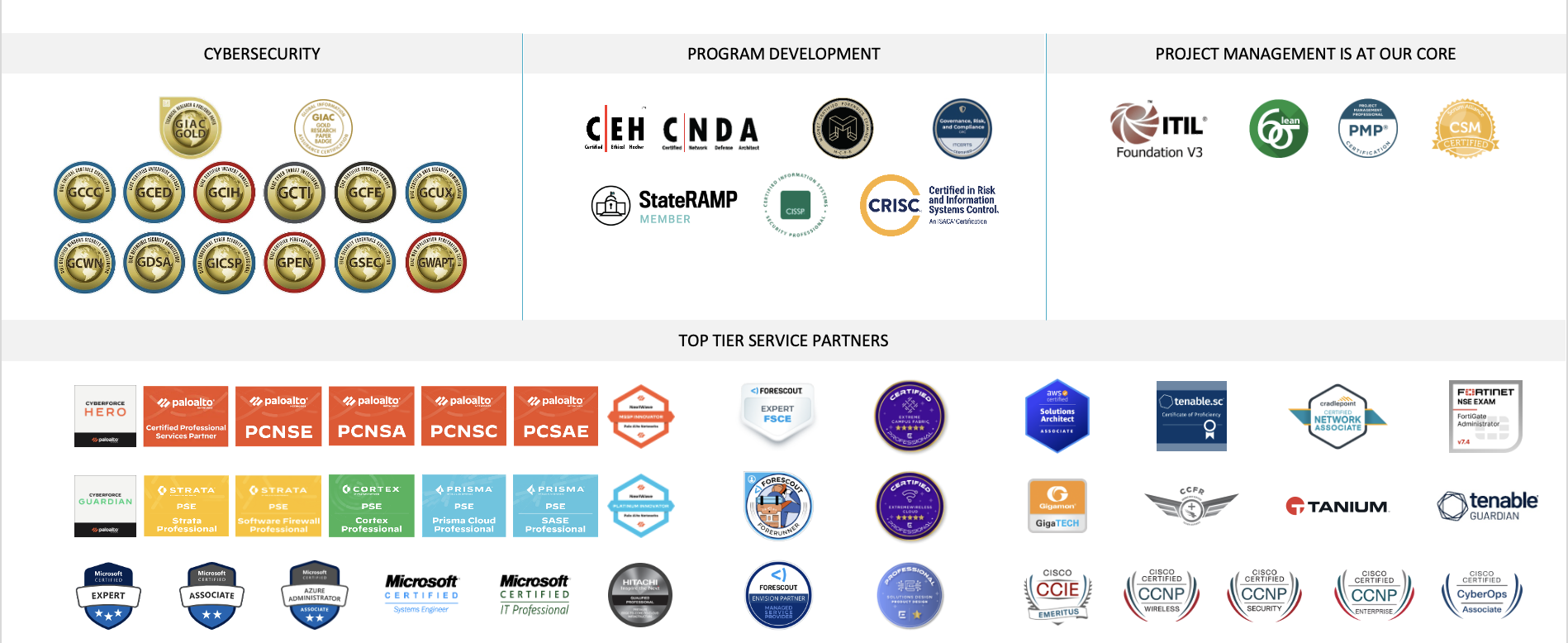Cybersecurity Solutions from Mainline
Protect Data, Prevent Issues, Mitigate Risk, & Improve Efficiency
Working with top cybersecurity technology partners, Mainline provides a range of protection methods and approaches to threat detection to help keep your business systems, network, and edge computing solutions safe from malicious actors.
“The members of the team were a welcomed extension of our Security Engineering and Architecture department at InComm Payments. Over the last few critical firewall migrations, our partnership grew, and we become confident in their ability to produce the expected results. The most recent and most critical of our firewall migration was flawless.”
Protect Your Business with Expertise in 7 Key Security Domains
Identity & Access Management
Enable centralized identity access and management for the modern workforce.
Application Security
Protect application data and code from cyber threats
Security Operations
Protect, Detect, Respond, Recover.
Data & Cyber Resiliency
Protect your data. Protect your business.
Network/Infrastructure
Prevent cybersecurity threats with tailored solutions designed to meet the unique challenges of your network and infrastructure.
Cloud Security
Ironclad flexible solutions to enhance your cloud security posture in an ever-threatening world.
Program Strategy & Advisory
Strategic advisory services to develop and execute an effective cyber security strategy.
Building a Sustainable Cybersecurity Program
Expert insights and practical strategies to build sustainable security practices.
The Skills To Face Any Challenges
Mainline invests heavily in time and resources to ensure our cyber security engineers stay up-to-date on all relevant technologies and best practices so that we can offer unparalleled security expertise.

The Mainline Difference
We help our clients sustainably extend their capabilities and intelligently navigate security’s broad collection of technology domains.
WHAT YOU CAN EXPECT
- Proactive, Predictive Threat Prevention
- Expertise in Legacy and Modern Environments
- Client-Centric, Consultative Approach
- Proven Track Record of Success Across Industries
